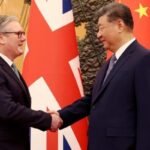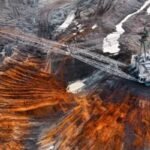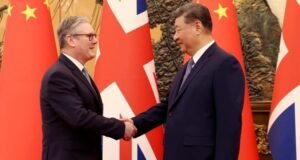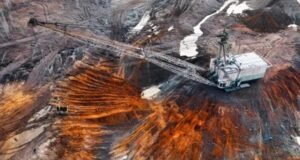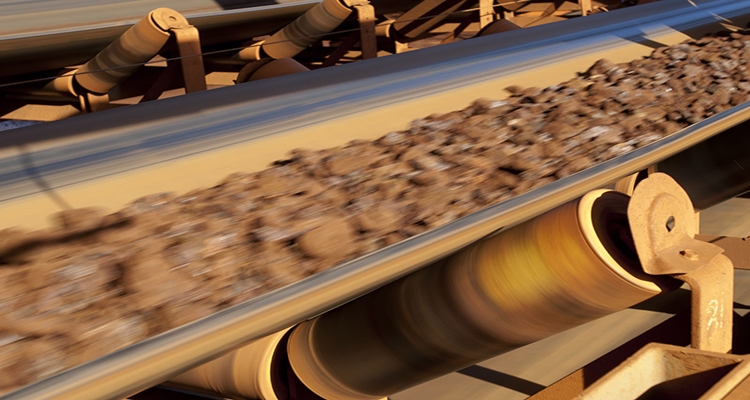
The United States would have readier access to rare earths and other minerals crucial for technology, including military technology, if regulators got the hell out of the way.
As part of the current U.S.-China trade war, China has sought to deal a “major blow” to the United States by imposing export controls on rare earth minerals (BBC, April 17, 2025).
“Rare earths” are a group of 17 chemically similar elements that are crucial to the manufacture of many high-tech products.
Most are abundant in nature, but they are known as “rare” because it is very unusual to find them in a pure form, and they are very hazardous to extract.
Although you may not be familiar with the names of these rare earths—like neodymium, yttrium and europium—you will be very familiar with the products that they are used in.
For instance, neodymium is used to make the powerful magnets used in loudspeakers, computer hard drives, EV motors and jet engines that enable them to be smaller and more efficient.
Yttrium and europium are used to manufacture television and computer screens because of the way they display colours.
Thomas Kruemmer, director of Gener International Trade and Investment, tells the BBC: “Everything you can switch on or off likely runs on rare earths.”
For more than three decades, China has treated the mining and processing of rare earths as a top priority. And now, says the International Energy Agency, China is responsible for 61 percent of all rare-earth mining in the world and 92 percent of all processing of rare earths in the world. The mining is pointless without the processing. These minerals don’t come out of the ground ready to use.
Between 2020 and 2023, the United States relied on China for some 70 percent of its rare-earth imports. At the moment, the United States has a single rare-earths mine, in California.
Gavin Harper, a researcher in the School of Metallurgy and Materials at the University of Birmingham, says that if China’s new restrictions continue, “Prices for critical rare earth materials [will] surge, increasing the immediate costs of components used in a wide range of products, from smartphones to military hardware…. Manufacturers, particularly in defence and high-tech, face potential shortages and production delays due to halted shipments and limited inventories.”
When the prices of a good go way up because of a shortage, especially a persistent one, producers of the thing in short supply have an incentive to expand production in order to exploit the profit opportunity. Miners and industrialists in the U.S. and all non-China countries have this incentive to supply the United States market with rare earths.
Decouple
These minerals are difficult to mine and process. So expansion of production won’t happen immediately. Even so, it will happen pretty fast as long as markets are allowed to function and anti-civilizational environmentalists and the anti-civilizational politicians and bureaucrats who collaborate with them are not permitted to impede production for fear of jostling The Environment.
But as Breitbart Business Digest notes, China has been able to dominate the market for rare earth minerals in part “because of American bureaucracy…. Our bureaucracy creates mountains of red tape that must be navigated in order to get these elements out of the ground (or ocean) and into useable form, in large part due to environmental concerns….
“What’s more, we knew that China was capable of withholding rare earths for leverage because they had done so to Japan in 2010 over a minor political dispute….
“It is essential to decouple from China on rare earths. The hard work should have started more than a decade ago. It must start today.”
It must start even if China quickly reverses its export restrictions.
Also see:
Breitbart: “Rare Earth Minerals Affected by China Export Ban Used in EVs, Green Energy, and Military Tech”
Fortune: “America’s only rare earths mine is hearing from lots of anxious companies”
The White House: “Immediate Measures to Increase American Mineral Production” (March 20, 2025)

